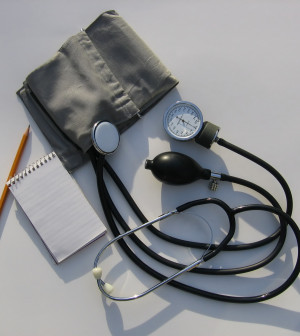- Could Artificial Sweeteners Be Aging the Brain Faster?
- Techniques for Soothing Your Nervous System
- Does the Water in Your House Smell Funny? Here’s Why
- Can a Daily Dose of Apple Cider Vinegar Actually Aid Weight Loss?
- 6 Health Beverages That Can Actually Spike Your Blood Sugar
- Treatment Options for Social Anxiety Disorder
- Understanding the Connection Between Anxiety and Depression
- How Daily Prunes Can Influence Cholesterol and Inflammation
- When to Take B12 for Better Absorption and Energy
- Epsom Salts: Health Benefits and Uses
Improved Artificial Heart Valve Approved


The newest version of the Sapien 3 Transcatheter Heart Valve has been approved by the U.S. Food and Drug Administration.
The artificial valve is designed for people with a narrowed aortic valve, a condition that restricts blood flow from the heart to the aorta, the body’s main artery. The product is sanctioned for people who are at high risk for death or serious complications from open-heart surgery to repair the narrowed valve, the FDA said in a news release.
The newly approved device is the third-generation Sapien 3, originally approved in 2011. The newest version includes changes designed to minimize leakage, the FDA said.
In people with aortic stenosis, the heart must work harder to pump blood through the narrowed opening. Symptoms can include fainting, chest pain, heart failure, irregular heartbeat and cardiac arrest.
Possible side effects of the device itself include stroke, serious kidney injury, heart attack, bleeding, the need for a pacemaker or death, the FDA said.
The device isn’t recommended for people who can’t tolerate anti-clotting therapy, the agency said.
The Sapien 3 is manufactured by Edwards Lifesciences, based in Irvine, Calif.
More information
Visit the FDA to learn more.
Source: HealthDay
Copyright © 2026 HealthDay. All rights reserved.










